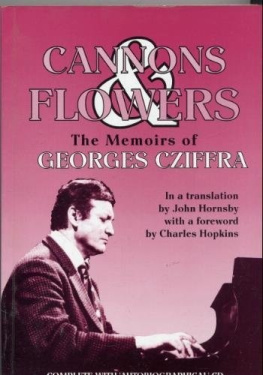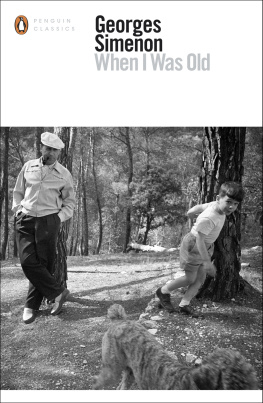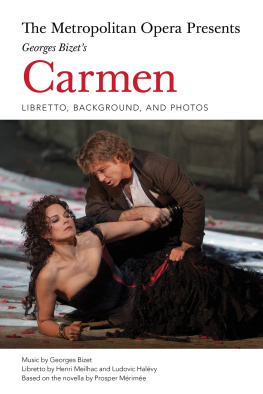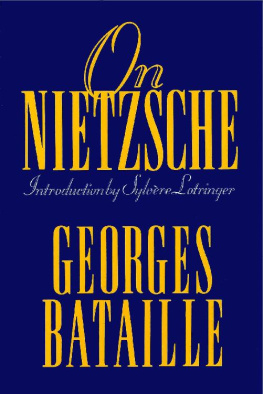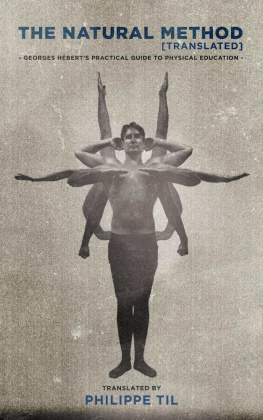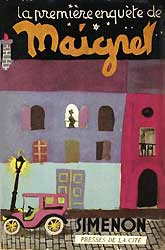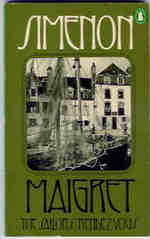Georges Cziffra - Cannons and Flowers: The Memoirs of Georges Cziffra
Here you can read online Georges Cziffra - Cannons and Flowers: The Memoirs of Georges Cziffra full text of the book (entire story) in english for free. Download pdf and epub, get meaning, cover and reviews about this ebook. year: 1996, publisher: APR, genre: Non-fiction. Description of the work, (preface) as well as reviews are available. Best literature library LitArk.com created for fans of good reading and offers a wide selection of genres:
Romance novel
Science fiction
Adventure
Detective
Science
History
Home and family
Prose
Art
Politics
Computer
Non-fiction
Religion
Business
Children
Humor
Choose a favorite category and find really read worthwhile books. Enjoy immersion in the world of imagination, feel the emotions of the characters or learn something new for yourself, make an fascinating discovery.
- Book:Cannons and Flowers: The Memoirs of Georges Cziffra
- Author:
- Publisher:APR
- Genre:
- Year:1996
- Rating:4 / 5
- Favourites:Add to favourites
- Your mark:
- 80
- 1
- 2
- 3
- 4
- 5
Cannons and Flowers: The Memoirs of Georges Cziffra: summary, description and annotation
We offer to read an annotation, description, summary or preface (depends on what the author of the book "Cannons and Flowers: The Memoirs of Georges Cziffra" wrote himself). If you haven't found the necessary information about the book — write in the comments, we will try to find it.
Cannons and Flowers: The Memoirs of Georges Cziffra — read online for free the complete book (whole text) full work
Below is the text of the book, divided by pages. System saving the place of the last page read, allows you to conveniently read the book "Cannons and Flowers: The Memoirs of Georges Cziffra" online for free, without having to search again every time where you left off. Put a bookmark, and you can go to the page where you finished reading at any time.
Font size:
Interval:
Bookmark:

English translation by John Hornsby of Gyrgy Cziffra jr.'s French version of the Hungarian manuscript.

Cziffra and his son Gyrgy (1959)

Soleilka Cziffra
Gyrgy Cziffra, a giant among pianists of the twentieth century, was born in Budapest on 5th November, 1921 and died on 15th January, 1994. Born with outstanding talent in circumstances of dire poverty ' such mixed fortunes were to be his lot all his life - he survived war, imprisonment, hard labour as a political prisoner, his hands and wrists seemingly permanently damaged, he survived to fight back and rebuild his career, improvising in nightclubs until in 1956 he escaped with his family to the West and became the idol of audiences and arned the admiration of colleagues as diverse as Alfred Cortot and Martha Argerich. However, a critical clique turned savagely against him, all the more when his wrists began to suffer under the strain of constant tours. Yet he achieved another dream: to create a foundation to help young musicians, which he did at Senlis, north east of Paris, buying an abandoned Royal Chapel where he set up the Franz Liszt Auditorium in homage to his hero and compatriot. Yet barely four years after the completion of these memoirs, the most terrible tragedy of all struck Cziffra and his wife, Soleilka, when their only son died in a fire in his home at the age of thirty-eight. Though he gradually made something of a comeback, the remaining years of Cziffra's life were chiefly spent auditioning and advising young musicians.
The welcome which Cziffra extends to his readers at the end of these memoirs to visit the Franz Liszt Auditorium at Senlis still stands. The Chapel Saint Frambourg was fully restored at last in 2001 when it was re-roofed in its original form. How proud Cziffra would have been to see it risen again in all its glory and now visible for miles around!
The first English edition of Cziffra's memoirs was published in 1996. Half the print-run was regrettably sent for pulping when the publisher sold up. We have taken the opportunity in this resurrected version to eliminate a certain number of misprints.
John Hornsby. March 2006
Soleilka Cziffra
Deux tions et navions quun cur . Franois Villon. (We were two with but one heart).
Im an Egyptian, born in Rome.Soleilka means sun. Not that Im being pretentious: the name was given to me by my parents just like yours was. My father used to say laughingly, "Youre a daughter of the sun, Soleilka, and you will rise above everything."
He used to tell me that the rulers of Ancient Egypt were our ancestors and that I should be proud to be a daughter of the sun. And so I was very proud.
Just for fun, I would go out into the garden and call out to the sun, "Shine!" Since we lived in Rome, it shone. That was easy. I would call to the wind, "Bring us some rain!" and it rained. If it didnt, it was just that the trees werent thirsty. Theres a simple explanation for everything if you dont want to lose heart.
I married Georges Cziffra, a Hungarian, in 1942. With him I lived through war and peace; he played for the living and the dead. We experienced death, fire, art, love and, above all, faith and resurrection. Then we lost our son. Then I lost my husband.
At this moment I, daughter of the sun and of thepuszta, am in dark, damp crypt of the Chapel in Senlis. Surrounded by the collapsing pillars of the Carolingian monument, I am kneeling on the mud floor at the foot of the statue of the Bishop of Saint Frambourg. Sharp bits of gravel cut into my knees while my hands are busy collecting the flowers, strewn here and there by the anonymous faith of visitors, and putting them into vases.
Modest tokens of a reviving cult, the fresh wreathes bow gently over the ribbed sides of the stone chasuble. For an instant, my fingers brush against the feet of the statue, fixed in their eternal, holy expectancy. The rough surface recalls the cold earth I had clawed at on impulse like a terrier until there appeared, wrapped in decaying rags, the statue now standing before me. I looked up, instinctively hiding my hands covered in earth and gravel. The Saint gazes through me dreamily to Eternity. From his blank stone eyes I feel a warm, appeasing dark wave coming from afar as if in answer to a prayer.
I often go into the Chapel to walk down the nave a little and relax. I walk with all my sorrows, dreams, hopes and faith. Over the speakers, the sound of the Rachmaninov concerto announces the start of the next visit. I sit for an instant on the hard-backed bench and listen: I feel within me the warm, appeasing, dark wave which shone in the statues blank eyes. The dreamy gaze passing through me to eternity is the message of Saint Frambourg: "Your deeds shall be accounted for in the realms of the living and the dead."
Georges and I lived through war and peace; he played for the living and the dead. We experienced fire, art, love and, above all, faith and resurrection.
May, 1996.
With a past such as mine, it is impossible for me to imagine a musician floating serene and imperturbable above the earth. This prelude is intended to remove any such misunderstanding.
People are, I feel, weary of descriptions with its executioners and martyrs, criminals and heroes, its processions of horrors and great deeds.
Yet as soon as I start to evoke that period of my life, images of major and minor events of the last war flit past me; my memories of a Europe aflame and flowing with blood intertwine, twitch and die. A Europe plunged into darkness by the eclipse of the human mind.
That long night explains why a major part of my experience has not been on the worlds concert platforms but in the operating theatre of dreadful war. How many of us, when I think back, were waiting for the miracle of peace, longing for it, we the inhabitants of Budapest as much as those of Paris or the other cities of Europe!
I dont know whether such episodes in my life came back to me deliberately or instinctively. It is not so much a taking-stock as a confrontation between two worlds which know nothing of each other, irreconcilable fragments of eternity on different orbits.
With time, something obvious has occurred to me about my disordered memories: only the laws of relativity can explain why I can find no link between past and present, why my inner world is split into two islands.
That is why I can only reveal myself as I was at the time a child then a soldier. Art and music had no part to play in war or the destitution of my family. It should be understood that during that period I was cut off from my past and my future: I had no time to weep nostalgically for my youth or dream of my future. My relationships with others were purely animal-like, mechanical and automatic. You should realize that I cant write about it all philosophically, looking down peacefully from a height on the horror and absurdity of the good old times, thanking God for saving me from hellfire as though some arcane Providence had planned it all.
It is not the picture of a young man seated at a piano that comes to mind but that of a soldier wandering in no mans land. During the long war years, I forgot ever having touched a keyboard. My hands were no different from those of other combatants: hands for wielding a weapon, for eating, for surviving, hands raised under the menace of a machine gun, hands tied behind ones back. How could I have remembered what it was like to have the supple hands of a musician? Those had died with the war.
Next pageFont size:
Interval:
Bookmark:
Similar books «Cannons and Flowers: The Memoirs of Georges Cziffra»
Look at similar books to Cannons and Flowers: The Memoirs of Georges Cziffra. We have selected literature similar in name and meaning in the hope of providing readers with more options to find new, interesting, not yet read works.
Discussion, reviews of the book Cannons and Flowers: The Memoirs of Georges Cziffra and just readers' own opinions. Leave your comments, write what you think about the work, its meaning or the main characters. Specify what exactly you liked and what you didn't like, and why you think so.

